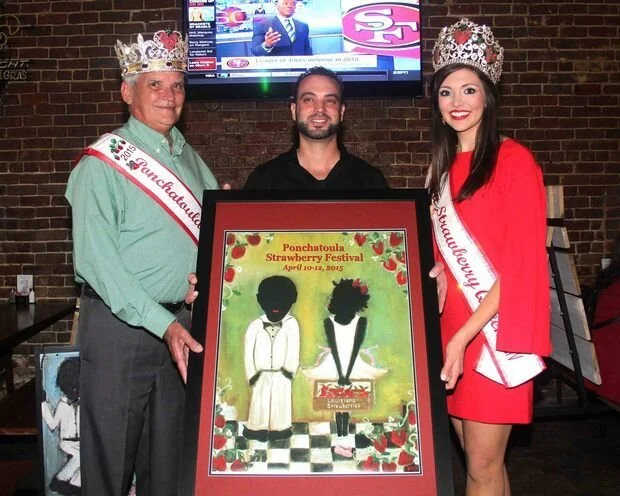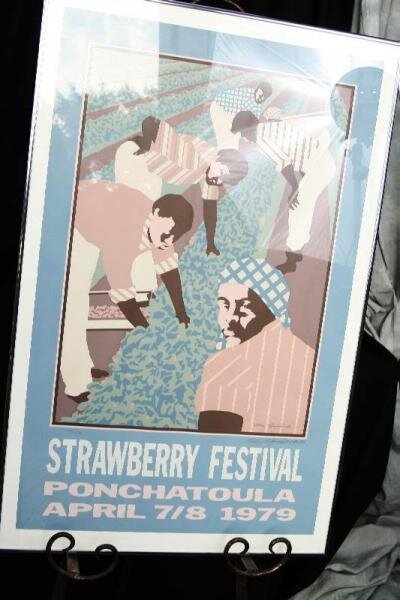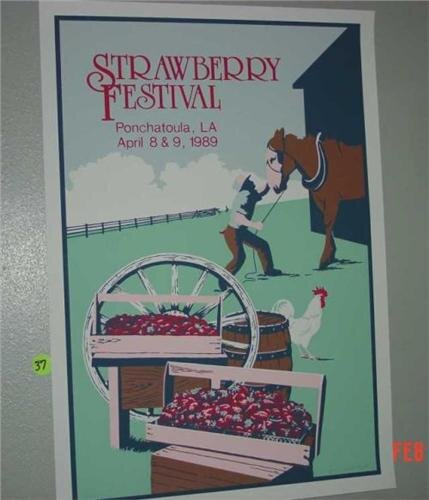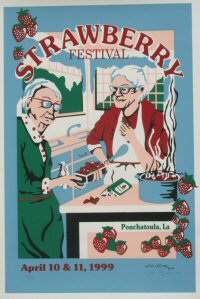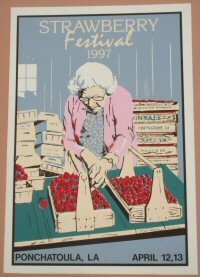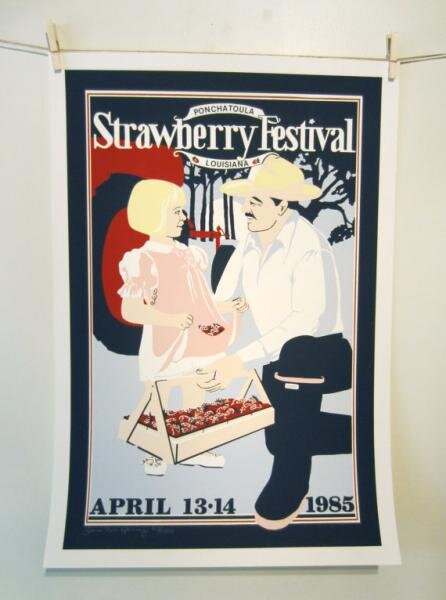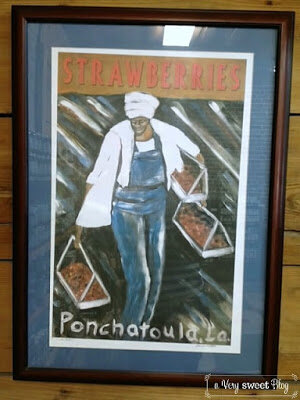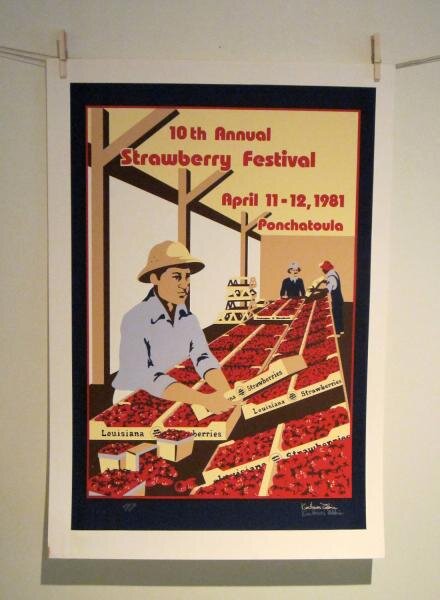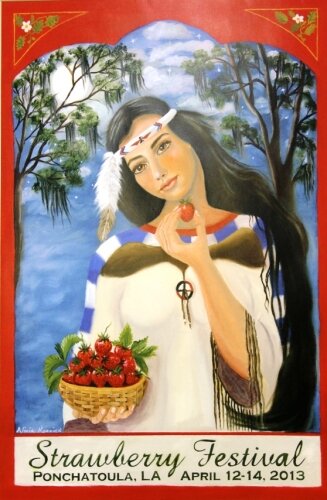Ponchatoula's Strawberry Fest Has a History of Poster Problems

This year's charges of racial insensitivity are bolstered by previous posters.
[Updated] This week, the Ponchatoula Strawberry Festival’s poster attracted controversy when it presented two "pickaninny" images that are highly reminiscent of antiquated, demeaning, slave-era depictions of African-American children. The image wasn’t helped by the photo that circulated of smiling white people holding the poster, but as Doug MacCash reported at Nola.com, the Ponchatoula Kiwanis Club defended the poster. It said in a statement (in part—MacCash’s story has the entire statement):
There was no intent other than to pay tribute to the festival and the strawberry industry. 'Although similar, Kalle's art is different. His African American paintings are free and spirited and express feelings of joy, happiness and laughter.'
“Kalle” is the artist—Kalle Siekkinen—and you can decide for yourself if you see a tribute to the festival, strawberries, joy, happiness or laughter in the poster. The press release mentions that Siekkinen
apprenticed under the late Bill Hemmerling, who was a world-renowned local Ponchatoula artist. Mr. Hemmerling was the artist of our 2008 poster "Sweet Olive". The 2008 poster was immediately embraced by our community. Even though it is no longer available, it is still in demand today. Kalle's poster was inspired by Sweet Olive; therefore, the Ponchatoula Kiwanis Club thought it would have the same positive reception by the community.
I haven't found the 2008 poster yet, but judging by Hemmerling's other work, Siekkinen wasn't much of a student. He missed all of the fluidity and physical idiosyncrasy in Hemmerling's art and learned primarily to black out the faces. Other works of Siekkinen vary between being overly immitative of Hemmerling's work and working with stereotyped images that reflect a desire to have an indentifiable, marketable signature image more than any African-American reality.
The Kiwanis Club’s statement might carry a little more weight if it weren’t for other Strawberry Festival posters. In previous years, African Americans have been depicted picking strawberries (including one woman wearing a “mammy” kerchief) and working in a lawn jockey-like pose putting a horse in the barn. He, like this year’s poster boy and girl, is faceless, while the pickers have dark, stylized faces that suggest where features would be more than they depict them. On the other hand, white people are saintly, gray-haired old women making preserves in the kitchen or a dad kneeling to talk to his little blonde daughter.
To be fair, the stereotypical imagery isn't limited to the Ponchatoula Kiwanis. This poster with an African-American woman picking berries in the field celebrated Ponchatoula strawberries, though not the festival specifically.
In this poster from 1981, a white man is clearly laboring to get the flats of strawberries on the stand. But while he's behind the sale display space, an African American in overalls and a red straw hat delivers the berries to his partner. The African American gets the berries from the field to the market, then the white man deals with the customers.
In 2013, the Ponchatoula Strawberry Festival branched out to present an Anglicized glam model Native American as a salute to the word "Ponchatoula"’s linguistic origins.
The Ponchatoula Kiwanis can claim that its posters are well-meant, but the pattern suggests at least a regrettably limited, insensitive, and stereotypical vocabulary of African-American imagery—one that they should be conscious of in 2015. And when the posters repeatedly present white people in loving, domestic contexts and African Americans as laborers, they don’t give us much reason to take them at their word.
Updated March 21, 12:10 p.m.
The painting by Bill Hemmerling and the commentary about the relationship between Siekkinen and his was added after initial publication.
Updated March 21, 12:46 p.m.
Posters for the 1981 festival and "Ponchatoula Strawberries" were added after initial publication, along with the accompanying commentary.

